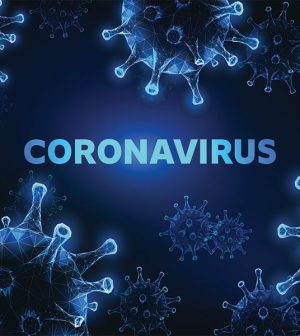- Are You Making This Expensive Thermostat Error This Winter?
- Recognizing the Signs of Hypothyroidism
- 10 Strategies to Overcome Insomnia
- Could Artificial Sweeteners Be Aging the Brain Faster?
- Techniques for Soothing Your Nervous System
- Does the Water in Your House Smell Funny? Here’s Why
- Can a Daily Dose of Apple Cider Vinegar Actually Aid Weight Loss?
- 6 Health Beverages That Can Actually Spike Your Blood Sugar
- Treatment Options for Social Anxiety Disorder
- Understanding the Connection Between Anxiety and Depression
Immune System May ‘Remember’ Infections From Previous Coronaviruses

Previous coronavirus infections might prime the immune system to fight the new coronavirus that causes COVID-19, a new study suggests.
There are numerous types of coronaviruses, including many harmless ones that cause mild upper respiratory infections similar to the common cold.
Besides SARS-CoV-2 — the virus that causes COVID-19 — other deadly coronaviruses include MERS-CoV, which caused a 2012 outbreak in Saudi Arabia of Middle East respiratory syndrome, and SARS-CoV-1, the first pandemic coronavirus that caused the 2003 severe acute respiratory syndrome (SARS) outbreak.
The authors of the new study investigated how coronaviruses affect the human immune system and also took a closer look at the workings of the antibody response.
“Our results suggest that the COVID-19 virus may awaken an antibody response that existed in humans prior to our current pandemic, meaning that we might already have some degree of pre-existing immunity to this virus,” said study senior author John Altin. He’s an assistant professor in the infectious disease branch at the Translational Genomics Research Institute, in Flagstaff, Ariz.
The findings could help scientists develop new diagnostic techniques and treatments, assess the effectiveness of convalescent plasma, and design new vaccines or monoclonal antibody therapies that can protect against mutations that may occur in the COVID-19 virus, according to the researchers.
The study was published Jan. 19 in the journal Cell Reports Medicine.
“Our findings highlight sites at which the SARS-CoV-2 response appears to be shaped by previous coronavirus exposures, and which have potential to raise broadly neutralizing antibodies,” Altin said in an institute news release. He explained that these neutralizing antibodies then may “bind” to elements of the new coronavirus, suggesting that the immune system’s response to SARS-CoV-2 could get some help from prior exposure to other coronavirus strains.
The study may help explain why the new coronavirus causes mild or no symptoms in some people, but severe infections that require hospitalization, and often result in death, in others.
According to study author Jason Ladner, an assistant professor at Northern Arizona University’s Pathogen and Microbiome Institute, the new findings “raise the possibility that the nature of an individual’s antibody response to prior endemic coronavirus infection may impact the course of COVID-19 disease.”
More information
The U.S. Centers for Disease Control and Prevention has more on COVID-19.
SOURCE: Translational Genomics Research Institute, news release, Jan. 19, 2021
Source: HealthDay
Copyright © 2026 HealthDay. All rights reserved.










